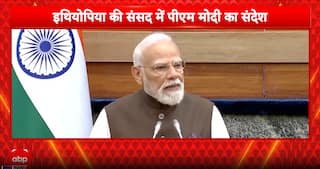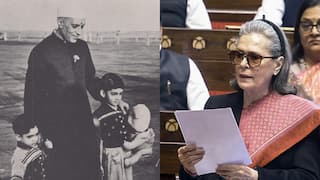COP27: India Wants Countries To Agree To 'Phase Down' All Fossil Fuels, Rather Than Just Coal, Report Says
COP27: India wants countries to expand a pledge made at COP26, so that not only are countries committed to phasing down coal, but also other fossil fuels.

COP27: India wants countries to agree to phase down all fossil fuels at the 2022 United Nations Climate Change Conference, rather than a deal to phase down just coal, news agency Reuters reports. Last November, countries agreed upon a deal to phase down coal at COP26 in Glasgow, Scotland. It marked the first time parties committed to speed up efforts towards a 'phasedown of unabated coal power'. This was a historic agreement because coal is the most polluting fossil fuel.
According to two sources who spoke to Reuters, India wants to expand the pledge to include all fossil fuels, so that not only are countries committed to phasing down coal, but also other fossil fuels.
When the news agency asked a spokesperson for the Indian COP27 delegation in Egypt to confirm this, the person said: "We did not mention coal at all."
According to the report, India's proposal to include all fossil fuels would have to be agreed by consensus during the next week if it were to go into a final COP27 deal.
India referred to a UN report
A report by the UN climate science panel which said that countries must halve emissions by 2030 to meet climate goals was what India referred to, the spokesperson said. According to the report, meeting climate goals by 2030 would require a substantial reduction in fossil fuel use.
"We mentioned the IPCC AR6 report that has come since Glasgow that recognizes the need for phase down for all fossil fuels. This was stated in the context of a clean energy transition only," the report quoted the spokesperson as saying.
Other important announcements made at COP27
The 27th UN Climate Change Conference held in Egypt also witnessed negotiators arguing on whether wealthy countries should help vulnerable nations pay for costly climate change-driven extreme weather events. A handful of European governments have offered 'loss and damage' funds to help vulnerable nations. Also, the hosts of COP27 launched a global plan to help the world's poorest communities deal with global warming.
Also, several announcements were made on 'loss and damage' due to climate change, climate finance, and climate change-driven extreme weather events, among others.
The UN announced a new high-tech, satellite-based system that could detect climate-warming methane emissions. In other words, the system can detect methane emissions from space, allowing governments and businesses to respond. The satellite-based system, called the Methane Alert and Response System (MARS), is a data-to-action platform set up as part of the United Nations Environment Program (UNEP) International Methane Emissions Observatory (IMEO) strategy to get policy-relevant data into the right hands for emissions mitigation, a UN statement says.
ALSO READ | COP27: UN Announces New System To Detect Climate-Warming Methane Emissions From Space
On the third day of COP27, 10 new insights in climate science were announced. The insights highlight how the potential to adapt to climate change is not limitless, and that climate change negatively impacts the health of living beings and ecosystems as a whole, anticipatory approaches are necessary to deal with climate-driven adverse weather events, climate security is necessary to ensure human security, and 'loss and damage' calls for a global policy response.






































